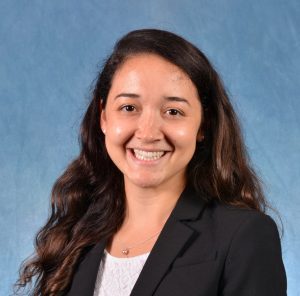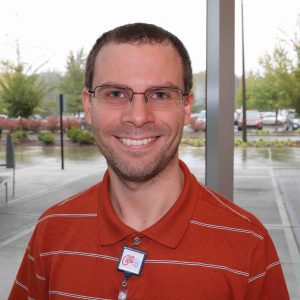UNC Geriatrics clinic’s SOCO program (Student Outreach to Older Adults) began in spring 2020, just after the pandemic sent most people into near lockdown conditions. At that time there was an immediate and widespread shift to telemedicine. SOCO’s initial focus was on connecting medical students to patients, through phone calls, to troubleshoot technical problems and ease access to virtual appointments with their providers. Student volunteers from medicine and social work were each partnered with several older adults for phone calls that could take place weekly, or bi-weekly, depending on the patient’s preference.

“Initially the patients I was assigned to needed some tech support, and that’s what we thought the program would do. But once the technical issues were solved, many patients continued in the program just to get the social check-ins,” says Mary Wurzelmann, UNC School of Medicine MS3 and program co-manager, along with the clinic’s social worker Bryan Godfrey.
“Two of the ladies who I call have large families themselves, and plenty of people to talk to, but they miss being able to meet new people,” says Wurzelmann.
SOCO’s goal is to reduce social isolation among clinic patients – many of whom still are largely homebound, five months into this pandemic – and give students a fulfilling volunteer experience. Godfrey points out that the intent of the program is to provide older adults a friendly, listening ear and empathetic voice, if needed or wanted.

“I really wanted the patients to understand that this is not a medical service, this person is not part of your care team,” says Godfrey. “The student is calling to give people more contact, and be sort of like a friend, with an empathetic voice and good listening ear. To be someone patients can talk to.”
Godfrey says that the clinic started the program soon after Covid-19’s initial impact, but isolation and ways to lessen it for older adults is an issue he has been focused on, as a social worker, for a long time. Wurzelmann agrees: “Even before there was a pandemic, social isolation was an issue, so I’m glad we’re able to continue with the program.”
The first SOCO cohort ended in early summer; the second cohort of 16 volunteer student callers are continuing with 23 patients. Surveys were sent recently to Cohort 1 participants, and the findings show evidence of the program’s success.
“Everybody had nice things to say about the program and the students they were interacting with, things like ‘this person had such a good bedside manner,’ or ‘this is someone who I would want to be my doctor,’” says Wurzelmann. “It was great to hear that so many patients really enjoy connecting with our student volunteers.”